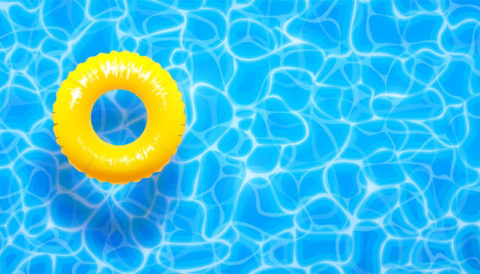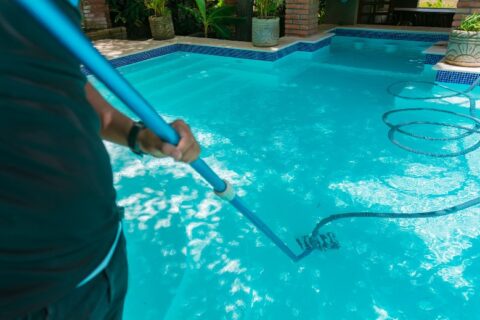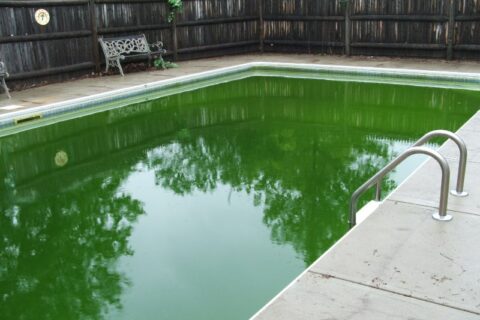10 Pool Cleaning Myths Busted

The pool is probably your favorite place to hang out in the summer. Of course, to keep the water clean and safe, you must maintain your pool regularly throughout the season. Just don’t fall for these 10 common pool cleaning myths.
- Clearwater is clean water. Clearwater only indicates a lack of algae growth. Plenty of microbes could still be residing in the pool, even if the water is clear.
- A chemical smell means the water is clean. That classic swimming pool smell isn’t actually chlorine. What you smell are chloramines, byproducts of chlorine that form when this chemical binds to contaminants in the pool. Therefore, a stronger smell often indicates dirtier water.
- Chlorine kills germs on contact. Yes, chlorine kills germs, but it takes time. Even in pools with ideal pH and disinfectant levels, most germs take hours to die. The microscopic parasite called Cryptosporidium can survive for days.
- Pool water can’t make you sick. If your pool is short on chlorine or has an improper pH balance, microbes such as Cryptosporidium, Pseudomonas, Shigella, Legionella, norovirus, and E. coli can survive for an extended time. Swallowing pool water contaminated with these microbes can cause diarrhea, ear infections, respiratory infections, and other recreational water illnesses (RWIs).
- Red eyes mean there’s too much chlorine. No, it means there are too many chloramines. If all the chlorine has bound to contaminants and turned into irritating chloramines, you need to add more chlorine to keep the water sanitary.
- A saltwater pool is a chlorine-free pool. Actually, the purpose of the salt in a saltwater pool is to create chlorine through a process called electrolysis. You also need to occasionally shock a saltwater pool by adding chlorine to sanitize the water and prevent algae.
- The best way to clean a pool is to drain it. Not only is it expensive to replace all that water, but draining a pool too often can cause structural damage. The best way to clean it is to add chemicals and scrub and vacuum the walls.
- It doesn’t matter what time of day you add pool chemicals. The sun’s UV rays can reduce the effectiveness of chlorine. That’s why the evening is the best time to add pool chemicals.
- The more often you backwash your filter, the better. You should only complete this pool cleaning step when the pressure gauge indicates that you should. If you backwash too often, you stir up sand and push it back into the pool.
- Baking soda is an effective pool cleaner. Baking soda (sodium bicarbonate) is not a suitable replacement for soda ash. Using it to increase the pH could damage your pool’s chemical makeup.
Take the guesswork out of cleaning your pool—leave the job to Millennium Pool Service! We offer weekly and biweekly pool maintenance packages to keep your pool clean for less. To learn more about our service packages, please contact us in Frederick, MD or Springfield, VA.


